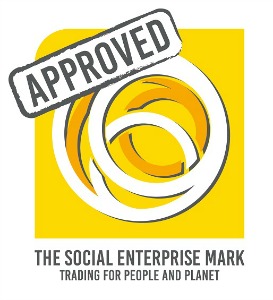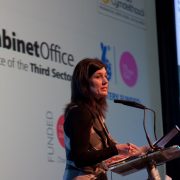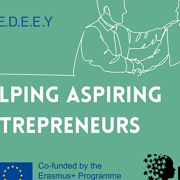Celebrating 7 years of upholding the standard for social enterprise
On the 7th anniversary of the launch of the Social Enterprise Mark, I am reminded of how far we have come as a sector in that time, but also of how far we have to go in being truly recognised as competitive, sustainable businesses in the mainstream business world.
 Since our inception back in 2010, Social Enterprise Mark CIC has endeavoured to ensure the social enterprise business model remains ethical, credible and commercial, through independent accreditation. As well as providing a single recognisable ‘identifier’ for genuine social enterprises, which are externally assessed against sector-agreed criteria, we work to promote the capabilities of social enterprises as a credible alternative to more traditional business models.
Since our inception back in 2010, Social Enterprise Mark CIC has endeavoured to ensure the social enterprise business model remains ethical, credible and commercial, through independent accreditation. As well as providing a single recognisable ‘identifier’ for genuine social enterprises, which are externally assessed against sector-agreed criteria, we work to promote the capabilities of social enterprises as a credible alternative to more traditional business models.
This is not easy by any means, especially when it comes to spreading the message to the public and consumers. However, there is clearly a shift change occurring in consumer attitudes towards the sustainability of brands and organisation, as seen in a recent study by consumer goods giant Unilever, which found more than a third of consumers now choose to buy from brands they believe are doing social or environmental good.
We are currently planning a new campaign, which will aim to encourage consumers to consider how they can be sure of the ethical/sustainable credentials of the organisations they buy from. By working with several high profile partners, we hope to spread the message to a much wider audience and to start a global conversation about how consumers can be sure brands are ‘walking the walk’ and not just ‘talking the talk’ when it comes to sustainability and their social purpose.
Another constant challenge is influencing government policy and embedding social enterprise within their mindset. I was interested to see PM Teresa May allude (albeit briefly) to her vision for an inclusive business strategy in the foreword of the government’s Green Paper on the Industrial Strategy: Building our Industrial Strategy. Although there was no direct reference to her recent Shared Society speech, the PM declared that the government wants to “move beyond short-term thinking to focus on the big decisions that will deliver long-term, sustainable success”.
As I wrote back in November in a post looking at the pressures faced by the public sector, tight financial constraints have been resulting in a rather short-term focus, where the bottom line has become of overriding importance, over and above what may be best for society in the long term. Social enterprises are rooted in their stakeholders and communities, and are therefore well placed to respond to the biggest issues facing society. They are set up to address a particular social issue or objective and this remains their driving, primary purpose for the long term – of course profitability is also important for the business to remain sustainable, but profits are used to serve the needs of social stakeholders and feeds back into their social objective.
As we begin our 8th year as the social enterprise accreditation authority, I am confident that we are moving in the right direction to achieving these goals, and look forward to what the next 8 years will bring.










